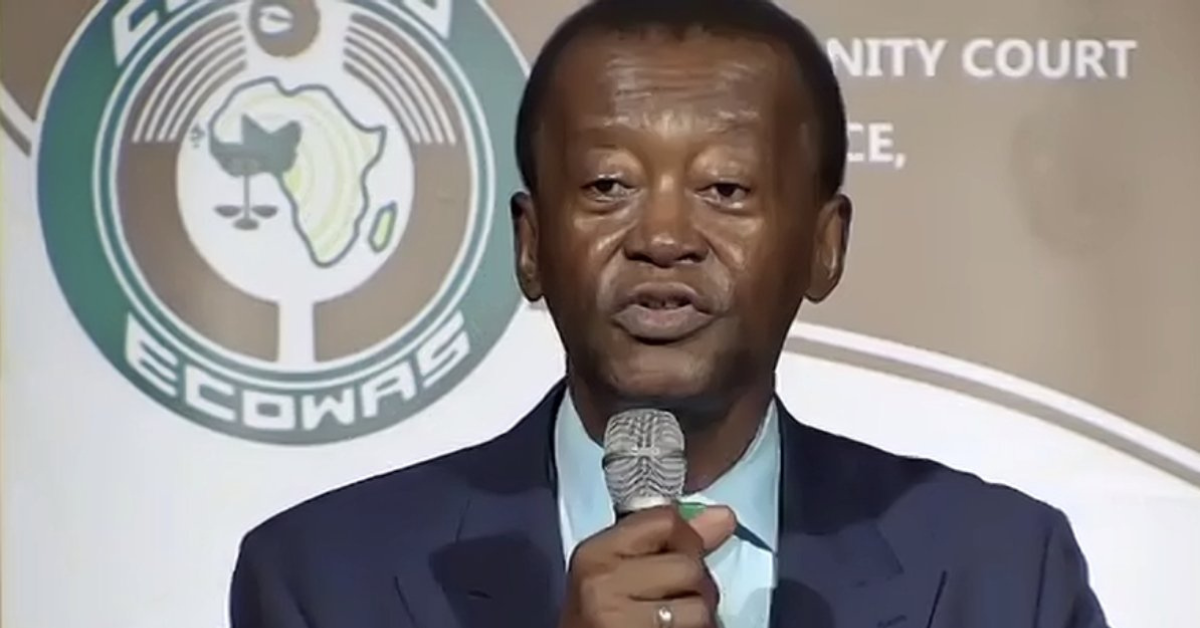All over the world, the A position of Chief Justice holds great significance as the head of the Judiciary and serves as a crucial link between the judiciary and other arms of government.
In Sierra Leone, the current Acting Chief Justice, Justice Nicholas Colin Browne-Marke, has been heralded for his commitment to bringing about positive transformations within the country’s legal system.
His appointment was met with widespread acclaim from various quarters, with many officials in the government, judiciary, and the public expressing optimism about the impact he would have on the judiciary.
Justice Browne-Marke’s reputation preceding his assumption of office signified a new era of reform and progress within the judiciary. Since stepping into his role, he has been lauded for his dedication to dispensing justice fairly and efficiently across the nation.
His efforts to rebrand and enhance the image of the judiciary have not gone unnoticed, garnering praise from many who have observed the positive changes taking place under his leadership.
While Justice Browne-Marke has made significant strides in transforming the judiciary. There are still areas that require attention and improvement. One such area is the issue of delays in cases that are pending in the higher courts.
This delay has significant implications, particularly in matters like the one involving Jaffer Zeghir versus Leonoil Company Limited, which is currently held up in the Courts of Appeal.
The prolonged wait for justice not only affects the aggrieved parties directly involved but also raises questions about the efficiency and transparency of the legal process.
The principle that “Justice Delayed is Justice Denied” underscores the importance of expediency in addressing legal matters. Delays in the resolution of cases not only erode public trust in the judiciary but also hinder individuals, especially those without significant influence or resources, from seeking redress through the legal system.
In the case of Jaffer Zeghir, the delay has the potential to harm his business and result in job losses for numerous Sierra Leoneans, highlighting the urgent need for prompt and impartial resolution of legal disputes.
As the head of the judiciary, Justice Browne-Marke bears a significant responsibility to address these challenges and uphold the fundamental principles of justice, fairness, and accountability.
It is essential that he investigates the reasons behind the delays in critical cases and takes corrective measures to expedite the resolution process. Transparency and effective communication with the aggrieved parties are crucial in maintaining public trust and confidence in the legal system.
Furthermore, these cases underscore the pressing nee for comprehensive reforms aimed at enhancing the efficiency and effectiveness the Sierra Leone Justice System.
Bureaucratic hurdles and undue delays should not impede the quest for justic must for all citizens. Justice must be delivered swiftly and fairly, regardless of one’s status or background, to ensure the rule of law is upheld and the interests of all citizens are served.
Justice Nicholas Colin Browne-Marke has a pivotal role to play in ensuring that justice is not delayed and therefore not denied. He must prioritize the timely resolution of critical cases and address any systemic shortcomings that impede the delivery of justice.
By committing to transparency, accountability, and ongoing reform, Justice Browne-Marke can continue to make his mark in transforming the Sierra Leone judiciary and upholding the rule of law for the benefit of all citizens.
It is imperative that justice prevails, and Justice Browne-Marke has the opportunity to ensure that it does.











